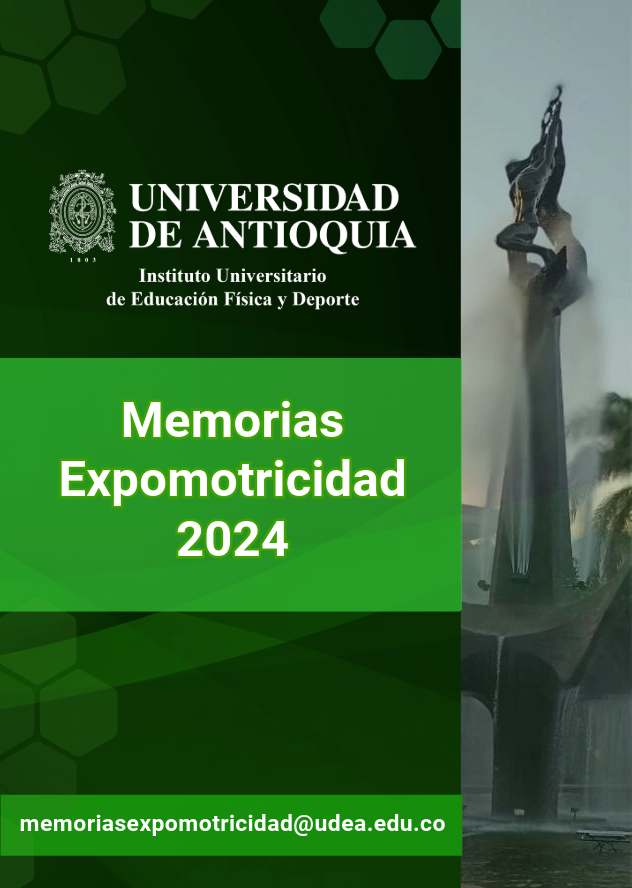Autobiography and bodily practices in teacher training to a culture of peace
Keywords:
autobiography, culture of peace, ethnography of education, teacher training, bodily practices, social transformationAbstract
A research group of the Instituto Universitario de Educación Física y Deporte (Institute of Physical Education and Sports) of the Universidad de Antioquia focused its pedagogical practice on understanding the historical roots of the armed conflict in Colombia and its impact on local communities in order to contribute to the reconstruction of the social fabric through historical knowledge, reflection and critical analysis of being, knowledge, power and teaching. In this sense, the orientation of the programs gives the Institute's interns the opportunity to face educational challenges in contexts of social vulnerability in the Santo Domingo neighborhood of Medellín, to promote a culture of peace and social transformation through physical and aesthetic practices and innovative methodologies. This article describes an experience with three goals: (1) to train interns, teachers, and directors ethically, critically, and politically, emphasizing their role as state officials for peace building in a marginalized community; (2) to strengthen the role of the university in training professionals for areas that are victims of conflict; and (3) to critically analyze the role of interns in the academic-community environment. To this end, an interdisciplinary study was designed that integrated knowledge dialog, pedagogical ethnography, research-action-reflection circles, and the use of art as a training tool. The research was based on the autobiographical account of the student to analyze the main experiences and relationships that underlie the realization of their pedagogical internship of interest, so that narrative inquiry is both method and object of study. The results showed a significant impact on the training of new teachers, focusing on the social, historical and political relevance of educational practices in post-conflict contexts. In addition, social inclusion and community cohesion have been promoted through pedagogical strategies adapted to social needs and a sensitive territorial understanding.
Downloads
References
1. Cachorro, G. A. (2009). Prácticas corporales. Traducción de sentidos en la ciudad. Pensar a Prática, 12(2), 1-0. https://doi.org/10.5216/rpp.v12i2.6326
2. Castro-Gómez, S. (2007). Decolonizar la universidad. La hybris del punto cero y el diálogo de saberes. En S. Castro-Gómez y R. Grosfoguel (Eds.), El giro decolonial. Reflexiones para una diversidad epistémica más allá del capitalismo global (pp. 79-91). Siglo del Hombre Editores. https://www.ram-wan.net/restrepo/decolonial/14-castro-descolonizar%20la%20universidad.pdf
3. Comisión de la Verdad. (2022). Hay futuro si hay verdad. Informe final de la Comisión para el Esclarecimiento de la Verdad, la Convivencia y la No Repetición. https://www.comisiondelaverdad.co/hay-futuro-si-hay-verdad
4. Echavarría, J. M. (2018). Works. Toluca Editions.
5. Fisas, V. (2011). Educar para una cultura de paz. Quaderns de Construcció de Pau, (20), 1-10. https://escolapau.uab.cat/img/qcp/educar_cultura_paz.pdf
6. Golombek, P. R., y Johnson, K. E. (2004). Narrative Inquiry as a Mediational Space: Examining Emotional and Cognitive Dissonance in Second-Language Teachers' Development. Teachers and Teaching, 10(3), 307-327. https://doi.org/10.1080/1354060042000204388
7. Guerrero Bravo, E. E., Muñoz Bedoya, J. M., Osorio Linares, L. M., Restrepo Álvarez, L. D., y Hoyos Henao, L. V. (2022). Los círculos de investigación-acción-reflexión como ruta para la formación inicial del profesorado de educación física con pertinencia social [Trabajo de grado, Universidad de Antioquia]. https://hdl.handle.net/10495/29138
8. Jimeno Salvatierra, P. (2000). De la etnografía antropológica a la etnografía educativa. Revista Complutense de Educación, 11(2), 219-228. https://revistas.ucm.es/index.php/RCED/article/view/RCED0000220219A
9. Lemaitre Ripoll, J. (2019). El Estado siempre llega tarde. La reconstrucción de la vida cotidiana después de la guerra. Siglo XXI.
10. López de Maturana Luna, S. (2016). Posicionamiento político del profesorado: retos de la profesionalidad docente. Educación de Adultos y Procesos Formativos, (3). https://www.educaciondeadultosprocesosformativos.cl/index.php/revistas/revista-n-3/35-posicionamiento-politico-del-profesorado-retos-de-la-profesionalidad-docente
11. Martínez Bonafé, J., y Rogero Anaya, J. (2021). El entorno y la innovación educativa. REICE. Revista Iberoamericana sobre Calidad, Eficacia y Cambio en Educación, 19(4), 71-81. https://doi.org/10.15366/reice2021.19.4.004
12. Moreno Gómez, W. (2018). El cuerpo en la escuela: los dispositivos de la sujetación. Expomotricidad, (2007), 149-175. https://revistas.udea.edu.co/index.php/expomotricidad/article/view/335273
13. Smyth, J. (1991). Una pedagogía crítica de la práctica en el aula. Revista de Educación, (294), 275-300. http://hdl.handle.net/11162/70287
Downloads
Published
How to Cite
Issue
Section
License
Copyright (c) 2024 Juan Pablo González Cano

This work is licensed under a Creative Commons Attribution-NonCommercial-ShareAlike 4.0 International License.




